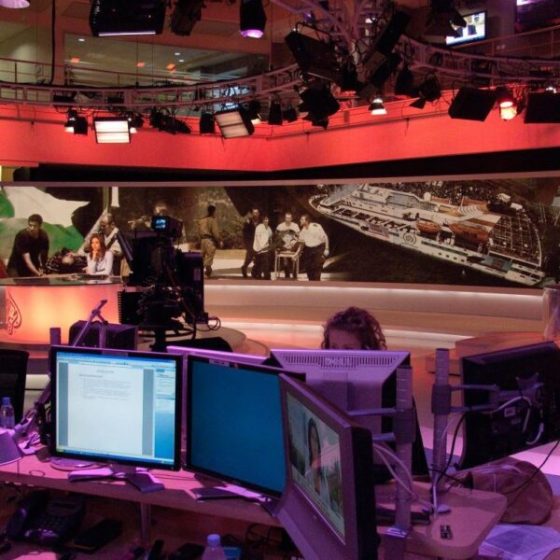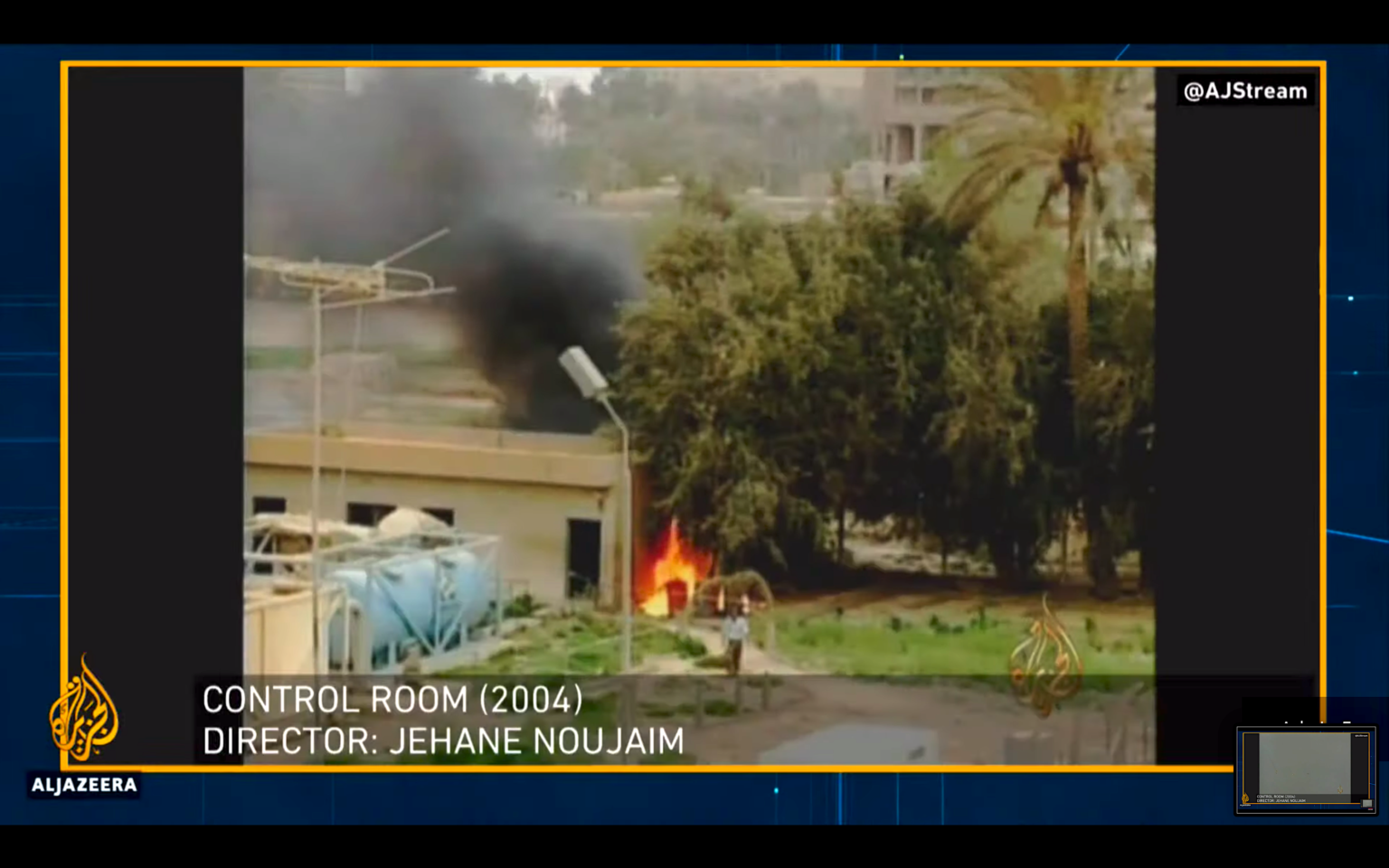
There was an unavoidable conflict in the roles of the Arab television network that inexorably caused its decrease, writes As’ad AbuKhalil.
By As’ad ABUKHALIL
The launch of the Aljazeeratelevision network 25 years ago this month in 1996 was a huge occasion in the modern history of Arab media. One can quickly compare it to the increase of Voice of the Arabs, the Egyptian radio broadcast founded by Gamal Abdel Nasser in Egypt in 1953.
Voice of the Arabswas offered on shortwave radio throughout the Arab world, spreading out Nasser’s message. No book on that period is complete without a recommendation to that radio service. It had a significant impact on the development of Arab public opinion for years until its demise after 1967, when Egyptian media was captured lying to the Arab people about the truth of defeat during the early days of the Arab-Israeli war.
The radio station that articulated the hopes of the Arab country all of a sudden stood as a sign of its incompetence and deceptiveness. No media replaced the Voice of the Arabsat the pan-Arab level until the rise of Aljazeerain 1996. Similarity between the two services ends there.
Aljazeeraoriginated at a time of local political instability in the Arabian peninsula. The then emir of Qatar, Hamad bin Khalifa Al-Thani, concerned power in 1995, having actually overthrown his daddy. That household coup so disturbed the Saudi royal family that they attempted to overthrow al-Thani a year later. Riyadh felt that any deviation from the established line of succession would amount to a betrayal of centuries-old customs that have been essential to steady political succession.
(Obviously, Saudi Crown Prince Muhammad bin Salman has breached those standards and the lines of succession to make himself the sole successor to his father, King Salman).
Hamad bin Khalifa al-Thani blamed Saudi Arabia for the 1996 counter-coup attempt and began to chart new foreign and defense policies that were directed at the Saudi danger (he justified his invite to host U.S. soldiers as a security versus his powerful neighbor).
Aljazeera,which is owned by the Qatari federal government, was releasedwith a large parameter of expression not seen in Arab media prior to. To be sure, there were red lines: very little was said about oil and gas policies, nor about the monopolies of royal families and the internal politics of Qatar.
As a guest on Aljazeeraoften times I can confirm that the network does not accommodate views that are vital of the Qatari royal household. (My last appearance a years earlier wanted I challenged the network on live TV about its favoritism of American authorities and its effort to reduce criticisms of Qatari diplomacy.)
No Competitors
Aljazeerawas a substantial success and it had no rivals at the time. There was the Saudi-owned media empire, MBC, which was begun in London in 1991 by a brother-in-law of King Fahd as the first Arab satellite channel. It was targeted at drawing Arab audiences with ridiculous home entertainment and sports shows and with less emphasis on politics: whatever news that was allowed was strictly within the specifications of Saudi foreign policy.
Even television serials on MBC carry blatant political agendas: either an anti-Shiite message (Al-Faruq, on caliph ‘Umar Ibn Al-Khattab, for example) or an outright Zionist message in the serial Um Harun, for instance. The latter was the very first TV home entertainment reveal to share the Zionist program into Arab houses.
Aljazeeragave Arab audiences what they had actually been waiting on for decades: an Arabic chat and news political channel. An argument show, which brought two opposite political views (Al-Ittijah Al-Mu’akis), was an immediate hit. The show was 90-minutes long (Arab audiences don’t struggle with American attention deficit disorder). The presenters ended up being immediate stars.
A lot of Arab houses were tuned in to Aljazeera especially when there was a breaking story; the only alternatives to Aljazeerawere regime-owned television stations that were dogmatically propagandistic. It is not that Aljazeerawas not serving a propaganda interest of the Qatari regime; however it likewise supplied a large margin of expression never seen prior to by Arab audiences.
There was much emphasis in those early years on Saudi Arabia and the channel highlighted human rights abuses there. Not all countries were dealt with equally, as allies of Qatar received better coverage. However the early supervisors and editors of the network were secular Arab nationalists which attracted many Arabs throughout the world. Even Arab-Americans registered for the Meal Network in order to receive Aljazeerabroadcasts.
My first look on the network in 2001 was to discuss Saudi Arabia. The channel mixed political talk shows and extremely serious round-ups of news. Experienced and gifted reporters were employed and offices were established all over the world. The Arab media scene had never ever skilled something similar, and themes about Arab unity and nationalism galvanized the audience.
However many Arabs had grievances about the coverage:
- the network hosted a weekly spiritual show with Yusuf Qardawi, a previous Muslim Brotherhood preacher with really conservative views. His version of Islam was interesting conservative Arab programs who opposed Nasser– the guy who successfully marginalized the Muslim Brotherhood around the Arab world;
- the network was the very first to host Israeli visitors; authorities of the Israeli government and military were regulars on political shows (they did receive tough treatment– unlike on Western programs– however the precedent was dreadful to lots of Arabs whose sensibilities were angered in the extreme);
- the network was increasingly getting protective about the U.S. government and it gave sufficient platforms for U.S. authorities to gush their propaganda. However the network’s promoting of the Palestinian cause and its vital protection of the U.S. intrusion of Iraq in 2003 happy Arab audiences (although the U.S. military reacted by merely bombingAljazeera’s workplace in Baghdad, which eliminated their chief reporter).

U.S. battle of Aljazeera’s Baghdad workplace.(Aljazeera video footage in the film Control Room)
The U.S. federal government and Arab routines became alarmed over the significantly important function of Aljazeera. Workplaces were banned, but the channel’s broadcasts were difficult to censor. Saudi Arabia was most worried due to the fact that Saudi dissidents (like Sa’d Al-Faqih) would appear on the channel and call for protests on certain days (surprisingly, there were people who responded to such calls under the repressive routine).
The U.S. (in Congress and the media) became more singing in their attacks on Aljazeerawith journalists and politicians calling for its restriction from U.S. cable providers (the U.S. federal government regularly prohibits “unfavorable” channels from the U.S. without much opposition from U.S. media).
Saudis Respond
The Saudi federal government quickly scrambled to produce its own political propaganda news channel and in March 2003– just in time to offer favorable coverage of the U.S. intrusion of Iraq– Al-ArabiyaTelevision channel was released to serve Saudi and U.S. interests. The network had a much narrower margin of coverage and just hosted opposition figures form nations that were not aligned with the U.S. and Saudi Arabia.
Aljazeeraremained the leading channel although Al-Arabiyagained ground. The U.S. federal government was extremely happy with the brand-new Saudi channel and senior U.S. officials (consisting of president George W. Bush) were offered for interviews, while lots of U.S. authorities boycotted Aljazeera outright.
It was in 2011 that the story of the decrease of Aljazeerabegan. Prior to that in 2008, the Qatari and Saudi governments reconciled and that resulted in much tamer coverage of Saudi Arabia by the network. The Saudi federal government asked for that Saudi opposition figures not be enabled on the network (The Emir of Qatar in 2010 informed me that the Saudi king asked him to ban me from the network).
But the greatest modification in the network’s coverage occurred in 2011, when the channel fell under the control of the Muslim Brotherhood and their affiliates. All secular Arab nationalists were pressed out of the station and brand-new religious-oriented staff was generated. With the beginning of the Arab uprising that year the network dropped all professional pretenses and adopted a more overtly propaganda line in requiring the topple of governments where change was favorable to the Muslim Brotherhood (such as in Egypt and Tunisia).
The channel passionately prompted the toppling of Egyptian President Hosni Mubarak, however refrained from advocating the topple of the King of Bahrain next door. If anything, the network supported the Saudi intrusion of Bahrain to crush its rebellion.

Aljazeera English protection of Saudi forces crossing the causeway into Bahrain in 2011.
Reasons for Decline
It was around that time that Arabs began to abandon the channel in droves.
There are no dependable figures to record the decrease of Aljazeeraand the channel still claims to have a leading position among Arab media. But many factors have caused the decrease of Aljazeera:
- the control by the Muslim Brotherhood of the network significantly undermined its professionalism;
- U.S. pressure on Qatar softened the protection of the U.S. The director-general of Aljazeera told me how the U.S. embassy in Doha sent routine important reports about the protection of Aljazeerademanding that changes be made. In 2009, Haim Saban, the Israeli-American media mogul, triedto purchase the channel.
- the use of Aljazeeraeither to first offend and then calm Saudi Arabia turned the network far from journalism and towards propaganda.
- the rise of regional channels in Arab nations harmed the scores of all pan-Arab channels, like Al-Arabiya,Aljazeera and MBC.
- the resort to sectarian agitation by some characters on Aljazeera, and the pro-Taliban, pro-al-Qa’ida compassions of some Aljazeera correspondents (like Ahmad Zaidan), hurt the image of the network with the bigger Arab audience and narrowed the appeal and audience share of the channel.
Aljazeerawas among the most fascinating cases of a brand-new Arab media in the 21st century; it guaranteed a break from standard stale and stiff Arab news broadcasts but ultimately stopped working in its mission. The early years of the network showed more professionalism in news than is seen on U.S. television networks.
However the Qatari federal government’s control of the channel would inevitably cause a dispute in between its professional objective and its propaganda role. Propaganda won and the Arab public is the even worse for it.

